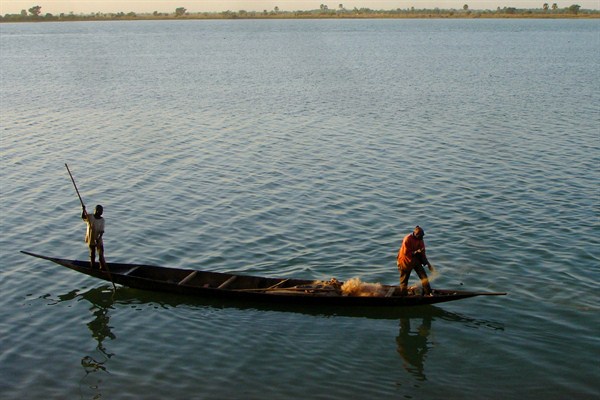West Africa’s Niger River Basin has been the location of many high-profile conflicts in recent years, including the decades-long violence in the river’s delta region and the Boko Haram insurgency in Nigeria, and another Islamist insurgency in neighboring Mali. However, another form of conflict has also gripped the region: Violence between farmers and herders has already killed over 1,000 people this year in Nigeria alone, according to Human Rights Watch, and it is increasing. At the root of many such incidents is the issue of access to land and water resources.
In the western Sahel region, climate and demographic changes have driven increased competition for resources between the region’s two oldest economic groups. Farmers and pastoralists—otherwise known as herders—have long coexisted through agreements among elders and traditional social arrangements for land and water use, such as ritual gifts and exchanging milk for grazing rights. But mounting environmental stress and institutional confusion have strained these ties and sparked violence.
The western Sahel region is a zone of transition between the Sahara desert to the north and the wetter grasslands to the south. Over the past century, changing climate patterns have caused the arid portion of the region to expand southward by nearly 125 miles, in turn pushing nomadic herders further south into agricultural lands. Meanwhile, the amount of land under cultivation has increased to accommodate rising food demand driven by high population growth and urbanization; Mali and Niger, for example, have the 12th- and seventh-highest growth rates in the world, respectively. The result is a marked increase of both sedentary farming and herding activity in an ever-shrinking southern section of the Sahel.

